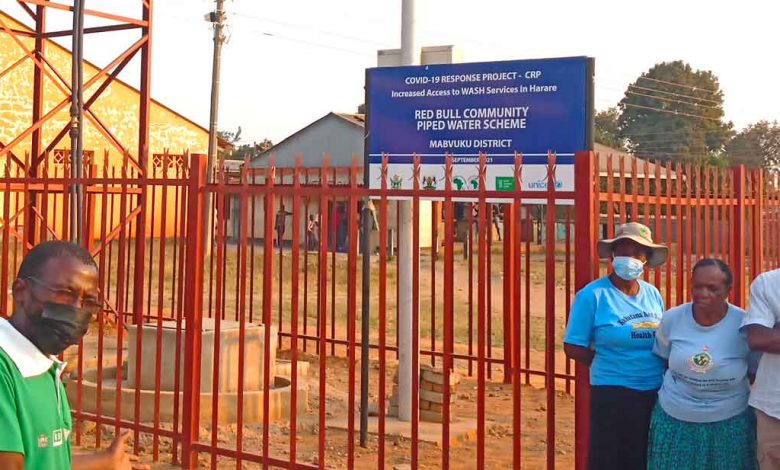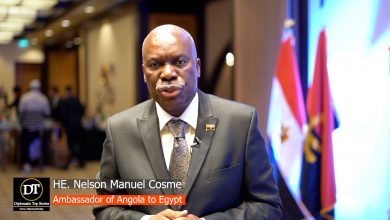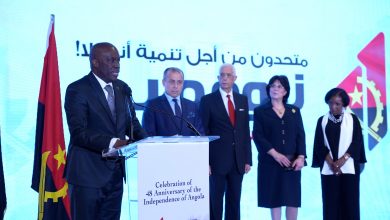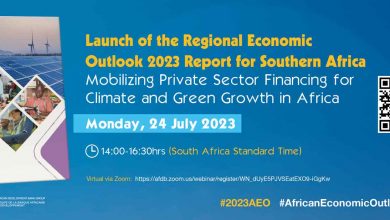Solar-powered tap water projects help Zimbabwe’s urban communities amid water scarcity and climate change | African Development Bank

Diplomat.Today
The African Development Bank
2022-11-17 00:00:00
——————————————-
Large-scale resources are needed to provide communities in vulnerable environments with access to safe water, essential to promote climate resilience, African Development Bank and UNICEF say at ongoing COP27 in Egypt
According to a recent Oxfam report, Hunger in a hot world[1], 7 of the 10 countries most vulnerable to climate risks are in Africa. One of these is Zimbabwe, which has experienced extreme climatic episodes, including droughts and storms, with increasing frequency and intensity over the past 20 years. Zimbabwe ranks second in the 2021 Global Climate Risk Index[2]and the latest evidence indicates that the country will continue to warm until 2080.
Harare, Zimbabwe’s capital and most populous city, with a population of 2.4 million, has not been spared the impacts of climate change. The natural water supply, Lake Chivero, which is fed by the Manyame River, has recorded a general decrease in available stored water and increased variability of inflow due to changing rainfall patterns.
The environmental degradation in the Chivero and Manyame watersheds has resulted in increased surface run-off, soil erosion and siltation, resulting in volume reductions of 6% and 10%, respectively, from the original design capacity. In addition, increased pollution in the watershed increased the need for water treatment chemicals to make it safe for human consumption.
The impacts of climate change exacerbate the complex and multi-dimensional challenges of securing the provision of water services to Harare. The city faces a major challenge in keeping services in line with rapid population growth and in financing the maintenance of an aging and dilapidated network that does not meet current and future requirements.
Water scarcity leaves residents dependent on unsafe water sources and forces them to queue for hours to get fresh water from safer sources. Water rationing is still a reality for many, who are without drinking water for days or weeks due to water scarcity due to climate change.
Fault Shumba, his wife, Marvelous, and their children, ages 3 and 5, who live in Mabvuku, a suburb east of Harare, know this daily struggle. Accessing clean, reliable water became an impossible task after the municipal water supply to their home ran dry three years ago.
Marvelous says, “Water has always been a challenge in my neighborhood. For drinking water, my family and surrounding community members relied on a few boreholes that were always overloaded due to high demand. Desperation also led my family to fetch water, a task often left to children, from unsafe sources such as shallow wells, which sometimes dried up.”
Error Shumba, Marvelous and their two children.
She added that she woke up as early as 2 a.m. to queue at the borehole. “A borehole near my home was particularly congested as it served many people and the mall, clinic and people from neighboring wards. The bush pump could no longer meet the high demand. Disorder, fights and harassment characterized the situation around the manual drilling hole,” said Marvelous. In response, community health clubs are established to strengthen social cohesion in the suburbs and prevent conflicts around the piped water system.
The Harare Water Department serves an estimated 4.5 million people in Harare Metropolitan Province, Chitungwiza and other nearby satellite cities.
Estimated demand is 800 megalitres/day against current production of 500 megalitres/day and a design capacity of 704 megalitres/day at the two water treatment plants (Morton Jaffray and Prince Edward).
Furthermore, power outages have reduced the effectiveness of water treatment systems. Communities have too often resorted to using unsafe water sources, exposing them to waterborne diseases.
In response, the government of Zimbabwe and UNICEF, with funding from the African Development Bank, worked together to improve access to climate-resilient water services. Harare has experienced outbreaks of cholera and typhoid in the past, but the COVID-19 pandemic has exacerbated the need for access to basic services, including water, especially for vulnerable households.
The introduction of a local solar tap water system in Mabvuku has provided a pumped supply of safe water close to the community. “We appreciate the solar tap water system installed as alternative water supply systems to combat COVID-19 and other WASH related diseases in our Mabvuku suburb,” says Fault.
The Shumba are among the 850,000 people who have benefited from the introduction of solar-powered water pipes in Harare province.

In recognition of the growing impact of climate change on the vulnerable, the African Development Bank is working with UNICEF, the Zimbabwean government and civil society organizations including Oxfam, Welthungerhilfe, GOAL, Africa Ahead and the Zimbabwe Red Cross to mount a response to COVID-19.
The African Development Bank, through its Transition Support Facility (TSF), has supported financing and implementation of renewable energy resources to power alternative water sources for vulnerable communities, reducing the need for children to fetch water and reducing the risk of diseases such as diarrhoea.
As a result of the initiative, 61 solar-powered water pipes were installed, 164 boreholes repaired and 15 new water points installed, reaching more than 854,975 people. The communities also benefited from 10,000 WASH hygiene kits, including for people with disabilities or with HIV/AIDS. In total, more than 1.8 million people were reached with health and hygiene messages, among other things.
This article is the result of a collaboration between the African Development Bank and UNICEF, marking a successful partnership on the ground for the benefit of Africa’s most vulnerable.
——————————————-



